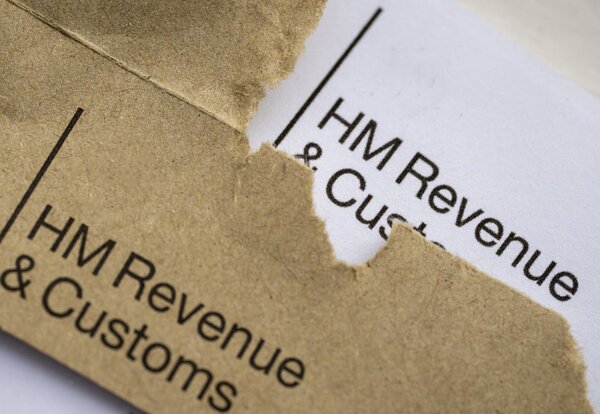The Importance of Emergency Funds for Business

Most business owners quickly admit that things don’t always go according to plan. Everything runs smoothly until an unforeseen circumstance knocks you over like a tidal wave. Picture this: a crucial piece of equipment breaks down, a key customer is late paying an invoice, or your business faces an unexpected slump in sales. The potential for these scenarios underscores the necessity of maintaining an emergency business cash reserve.
Emergency funds are your safety net during unpredictable circumstances. They serve as a financial cushion, allowing you to manage unexpected expenses without the need for loans or credit card debt. Think of them as your business's life raft during a storm. This article will explore the significance of cash reserves for business continuity and provide guidelines to establish your own.
Cash reserves aren't just for large corporations. Small businesses, in particular, need adequate emergency funding to navigate periods of financial instability. The COVID-19 pandemic highlighted this need, with many businesses closing due to insufficient emergency funds. This article will guide you through understanding and creating appropriate cash reserves tailored to your business needs.
Defining Cash Reserves
Cash reserves are funds intentionally set aside to be immediately accessible in times of financial strain. While the term “cash reserves” might conjure images of money piles in savings accounts, these reserves can also include short-term, liquid investments like money market funds. Liquid assets that can be quickly converted to cash are also part of your cash reserve. The key is that these funds are easily accessible to cover sudden expenses or revenue drops, ensuring your business remains operational.


The Role of Cash Reserves in Business Stability
Cash reserves play a crucial role in protecting your business by providing immediate funds to manage unexpected costs or fluctuations in revenue. An emergency fund allows you to cover expenses without resorting to high-interest loans or accumulating credit card debt. Think of these reserves as your financial umbrella, ready for any business downpour. They help your business remain stable and resilient, maintaining operations smoothly through unpredictable challenges.

A JPMorgan study of 597,000 small businesses found that 25% of small businesses held fewer than 13 cash buffer days in their reserves. This startling figure indicates that many businesses lack the necessary funds to withstand even short-term revenue disruptions. Additionally, a separate survey from the Federal Reserve Bank of New York revealed that 47% of small business respondents admitted they would have to use personal funds to support their business during financial hardships.Recent Statistics on Business Reserves

The COVID-19 pandemic importantly highlighted the consequences of insufficient cash reserves. Studies by the Department for Business, Energy & Industrial Strategy revealed nearly 400,000 UK businesses closed due to the pandemic, with London and the West Midlands being the worst-hit regions. This data demonstrates the critical need for emergency funds to ensure business survival during prolonged crises.Impact of Insufficient Cash Reserves

Determining Your Cash Reserve Amount
Calculating your business cash reserve involves several factors. First, determine your fixed and variable expenses from your financial statements. Next, consider your business growth rate and future cash needs. For instance, rapidly growing businesses typically need larger reserves. Third, identify other quick-access cash sources, such as liquid investments or assets you can sell if necessary. These factors will help tailor the right cash reserve amount for your business, ensuring financial stability regardless of the circumstances.
Steps to Calculate Cash Reserve
To calculate your cash reserve, first determine how many months of expenses you want to cover, generally three to six months. Review a cash flow statement from the past year to find total business expenses. Divide this annual expense by 12 to get the average monthly expense. Multiply the monthly expense by your determined months to cover. For example, with annual expenses of £25,000, monthly expenses would be £2,083. To cover six months, aim for a reserve of £12,500. This formula offers a starting point, which you can adjust based on your business’s unique needs.

Tips for Building Cash Reserves

Automate Savings Set up automatic transfers to your reserve account to ensure consistent contributions. This habit makes saving easier and more reliable.

Cut Non-Essential Costs Review your expenses and eliminate or reduce non-essential costs. These savings can significantly bolster your cash reserves over time.

Monitor Regularly Regularly update your financial statements and adjust your cash reserve based on business growth and changes. Keeping your reserve aligned with current needs is crucial.

Fun Fact About Cash Reserves
Did you know? The term "rainy day fund" dates back centuries and originally referred to money set aside by farmers to cover bad weather impacting their crops.
Handling Business Cash Reserves

Establishing and maintaining an adequate cash reserve is essential for business resilience. Regularly review your financial health, considering both fixed and variable costs, and adjust your reserve based on business growth. Prioritise liquid assets in your reserve, ensuring they are easily accessible during financial strain. Maintain a disciplined approach to saving, automating deposits into your reserve account to build consistency.

Regularly assessing your financial health is crucial for ensuring your cash reserves remain adequate. Track both fixed and variable costs, and identify areas for potential savings to contribute to your emergency fund. A proactive approach towards understanding and managing your expenses will help you maintain a robust financial cushion.Regular Financial Review

Incorporating liquid assets into your reserve strategy ensures quick access to funds during emergencies. Liquid investments like money market funds and easily sellable assets provide a buffer without tying up too much capital in non-liquid forms. Prioritising liquid assets within your reserve plan enhances your business’s ability to navigate financial turbulence swiftly.Leveraging Liquid Assets
Summary
Building an emergency business cash reserve is crucial for maintaining stability through unforeseen challenges. Cash reserves, encompassing both direct cash and liquid investments, offer an immediate financial cushion. Accurately calculating reserves involves understanding expenses, growth projections, and accessible cash sources.
Establishing these reserves protects your business from sudden financial strains without resorting to debt. Regular reviews and prioritising liquid assets ensure your reserve meets ever-changing needs. Utilise the Pie Tax App for guided financial support and expert advice.
Frequently Asked Questions
What are cash reserves?
Cash reserves are funds set aside for emergencies, accessible for sudden expenses or revenue drops, ensuring smooth business operations.
Why are cash reserves important for my business?
They provide a financial cushion during unforeseen events, preventing the need for high-interest loans or excessive credit card debt.
How much should I keep in my cash reserve?
Generally, enough to cover three to six months of expenses, tailored based on your business's specific financial needs and growth.
What sources can be included in cash reserves?
Besides direct cash, short-term liquid investments like money market funds and sellable assets can also be included.
How can the Pie Tax App help with my cash reserves?
The Pie Tax App offers expert tax assistance and financial planning tools to help you manage and optimise your business cash reserves effectively.











